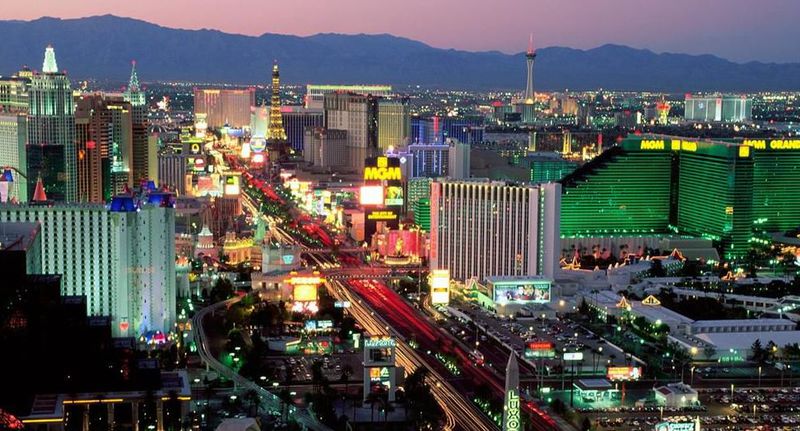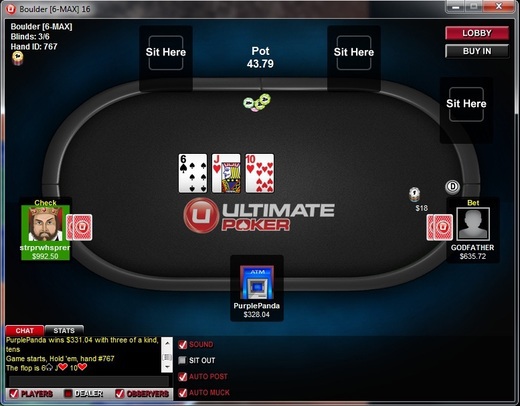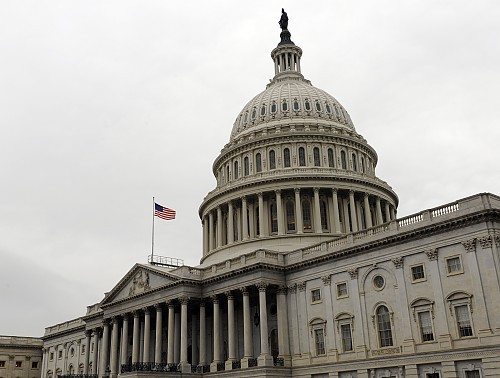






One-Year Anniversary Of Nevada Online Poker Reveals Successes, Challenges And Goals For FutureCard Player Chats With Company That Launched First |
|
|

Today marks the one-year anniversary of the first hand of real-money online poker in Nevada.
On the morning of April 30, Ultimate Poker, an offshoot of Station Casinos, launched real-money online poker in the Silver State. Its first hand was the first ever in a U.S. jurisdiction that licenses and regulates the Internet gambling industry.
It was a long time coming.
Nevada said OK to online poker in the summer of 2011, and regulators drafted rules, which were adopted in December 2011, for the fledgling industry in the following months. For many, pretty much all of 2012 and some of 2013 was spent trying to guess which site would be the first to the market. Ultimate Poker was the victor.
Since Ultimate Poker’s launch, products from the World Series of Poker, under the Caesars umbrella of ownership, and South Point Casino (Real Gaming) have hit Nevada cyberspace.
According to PokerScout, Ultimate Poker’s traffic in Nevada has been declining over the past six months, while the WSOP has been more or less holding steady since it debuted in September. Real Gaming’s traffic has been almost non-existent since its February launch.
Traffic for Ultimate Poker has dropped from an average of 150 cash game players online at any given time to just about 60, over the course of the past six months. The WSOP’s site has gone from around 110 to less than 100, during that time span. Numbers for both sites should increase during the summer, as thousands of poker players head to Las Vegas to compete for bracelets or participate in the side action that surrounds the live tournaments.
 Tobin Prior, CEO of Ultimate Gaming, told Card Player that the market size in the jurisdictions where online poker is regulated has been below expectation. In addition to Nevada, New Jersey and Delaware have fledgling web betting industries. Nevada’s is only poker, while the other two also have other forms of casino games on the Internet.
Tobin Prior, CEO of Ultimate Gaming, told Card Player that the market size in the jurisdictions where online poker is regulated has been below expectation. In addition to Nevada, New Jersey and Delaware have fledgling web betting industries. Nevada’s is only poker, while the other two also have other forms of casino games on the Internet.
“Nevada obviously is pretty interesting in that it was the pioneer for online gaming,” Prior said. “It took a pretty conservative approach in a number of regards. Firstly, they went with online poker only, and went with the kind of regime where you needed to get your product fully compliant in the labs before they would permit you to go through a field trial situation."
It took until July for Ultimate Poker to have its full-fledged product approved.
Market Size
In the time between the initial launch and the end of March 2014, Nevada’s online poker industry has grown to more than $900,000 a month. That’s the money the three sites rake in from players. A total of $9.426 million in online gaming revenue was realized from April 30, 2013 to Mar. 31, 2014.
The state benefits by being able to tax revenues generated from online gaming action.
While that figure has been less than what was hoped for, the past 12 months have been crucial for setting up a successful future for Internet poker not only in Nevada, but for the rest of the country. Other states—such as California and Pennsylvania—that are discussing possible legalization have obviously taken a hard look at how things have gone so far in Nevada.
“I think the big noteworthy achievements in Nevada [was that] going first had a lot of risk; a lot of people were watching to see if things worked, so it was really important it did work—that you could geo-locate people, that you could determine their age, that you could operate a regulatory compliant online gaming operation in the state,” Prior said.
“So those were the biggest achievements: that the regulations could be implemented and that technology could work, so you could run it in a fashion that the regulators wanted.”
If you forget the numbers for a minute and just consider that there hasn’t been any scandal related to online poker in Nevada, the first year has been an overwhelming success for not only the firms, but also the state. The regulations worked.
 Payment Processing Issues
Payment Processing Issues
Though, in order to make online poker work, as has been proven by the smaller-than-expected market size, there is a need to constantly tweak things and make it easier for players to get money on and off the site.
That’s arguably more important than the overall aesthetics of a site.
Before Nevada going live with regulated online poker, the industry operated in a legal gray area, with the only way to play real money poker being through an offshore operator. That history has plagued the regulated industry so far in Nevada when it comes to payment processing.
“One of the biggest things we didn’t anticipate that we would have quite this much trouble on was the payment processing,” Prior said. “One assumed that when online gambling legalized most of the banks and credit card companies were going to embrace that legitimate activity and support transactions. But we still have a large issue with them not processing charges."
“People are used to using a Visa card, for example, and when they experience problems with it they don’t suspect that there’s a Visa issue there but instead a problem with legitimate sites. And of course many can still process Visa transactions on unregulated sites.”
In other words, the financial institutions have been slow to recognize the new legality of web gaming in select states. The consensus is that they will eventually relax their restrictions.
There really is no bigger headache for players than having trouble depositing onto a site. And if you combine that with all the checkpoints needed to make sure a player is of legal age to play, within the physical borders of Nevada, and who they say they are, the work needed to be done prior to playing a single hand has proven to be a roadblock for the new industry taking off.
“It’s a lot more onerous for the customer than what they have been used to,” Prior said. “That definitely has an impact on the size of the market. It’s also difficult to move people who are playing on unregulated sites off those sites to a regulated gaming environment. That has been an interesting challenge. Implementing all the new technologies and guiding customers through it has been a learning curve for the consumer in the market and us.”
State officials have been looking at the issue as well, in addition to trying to figure out ways to increase the potential pool of customers that can access the online poker sites. In the first year of Nevada online poker, the Silver State has already inked a deal to eventually partner up with Delaware, allowing residents in both states to spend with sites in either jurisdiction.
Job Creation In Nevada
One of the reasons why Nevada legalized online poker in the first place was to help the state’s economy. Gaming of course is a dominant player in Nevada, and it’s responsible for jobs for many residents. Online poker was seen as a way to add highly-skilled jobs to the workforce.
“The reality is that jobs have been created,” Prior said. “We have grown in Nevada to over 60 full-time employees. There is very real and meaningful job creation. It is an entirely new business. These are not jobs that we have taken out of our other operations.”
And so far, there has been no indication that online poker has in any way taken away from brick-and-mortar visitation and spending. In fact, many casinos agree that, if done right, online gaming can create a synergy between the two spheres. Year one hasn’t revealed the full extent of this, but if Ultimate Poker can be used as an example, the fact that customers have been utilizing the option to deposit at a Station Casino location, online poker has brought people into a physical casino, and that alone can be positive for the property.
Though it has been a slow process, Nevada has laid the groundwork to be an online gambling hub in the United States, as Gov. Brian Sandoval outlined just a few years ago.
Dozens of firms have been licensed to offer online poker in Nevada, and as time goes on more are expected to test the waters. That means more jobs for the state and possibly an increase in live poker tables as well. The online poker boom during the 2000s increased the popularity in the game, one that spilled over into “real life” as well.
The year 2013 marked the first time since 2007 that poker revenues increased in Nevada.
 Revamping the Software
Revamping the Software
Prior called the process of developing upgrades to his company’s software, getting them tested by the labs and then approved by Nevada regulators “time consuming.”
But it’s necessary, he said.
“It’s important to improve our product in line with what consumers expect and want. It’s one of the prime areas of focus for us right now,” he said. “A lot of the technologies that we pioneered [in Nevada] are getting better by the day.”
The company has been working on “refining” its technology and always focusing on making its product more attractive to gamblers. In the coming weeks, the firm will release another version of its software, likely providing players with a game that is closer to what they are used to.
However, some of the upgrades are as simple as increasing the options for poker players. When Ultimate Poker launched, limit Texas hold’em and no-limit Texas hold’em ring games ranging from $0.01-$0.02 to $10-$20 were the only cash games available.
Of course, year one isn’t the only time during which big changes will be made to online poker sites in Nevada. It is obviously a perpetual process, one that will be ongoing as long as there is an online gambling industry within the Silver State. Growth is the name of the game.
Prior added that the value of all the work done by the customer to get their age, identity and location checked “will come with time.” In other words, there should be a time in the future when online gamblers realize the importance of all these efforts to make the games, and their funds, safe and secure and eventually ditch unregulated sites for good.
 Federal Online Poker Bill Drawing Slim
Federal Online Poker Bill Drawing Slim
One of the key developments in the first year of Nevada online poker is the industry’s further realization that a federal bill authorizing the activity is almost surely not going to happen. The odds are basically astronomical, and the firms, as well as the state, have adjusted to this reality.
Prior said that the chances of a federal online poker bill are “pretty remote.” Prior pointed out that only about four percent of the entire population of the United States lives where online poker is legal and regulated, so while very unlikely, a federal bill is of course preferable.
Revenues below expectations so far make a nationwide network seem even sexier, but that is not in the cards for the industry. “We will follow whatever route to market that we can,” Prior said. “If it goes state-by-state, then we’ll pursue that. If it goes federal, we’ll go along with that.”
Even though the federal government is unlikely to act in any way on the online poker issue, past decisions by lawmakers on Capitol Hill are still impacting the industry—namely through the 2006 Unlawful Internet Gambling Enforcement Act (UIGEA). That law has made payment processing to this day difficult, even for the regulated U.S. sites, and most of the work right now is to figure out ways to undo online poker’s past.
